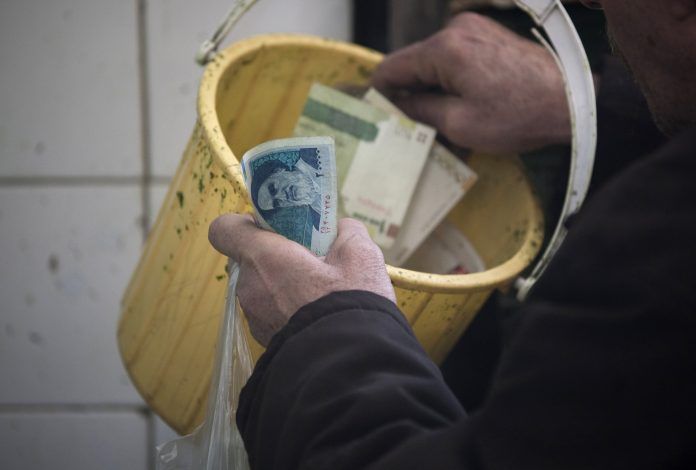
DUBAI, Oct 15 (Reuters) – Iran‘s economy is expected to shrink by 9.5% this year, the International Monetary Fund (IMF) said, down from a previous estimate of a 6% contraction, as the country feels the impact of tighter U.S. sanctions.
The IMF forecasts, published on Tuesday in the fund’s World Economic Outlook report, are not far from estimates given last week by the World Bank, which said the Iranian economy by the end of the 2019/20 financial year would be 90% smaller than it was just two years ago.
Iran, a large oil producer, saw its oil revenues surge after a 2015 nuclear pact agreed with six major powers that ended a sanctions regime imposed three years earlier over its disputed nuclear programme.
But new sanctions brought in after U.S. President Donald Trump withdrew from that deal in 2018 are the most painful imposed by Washington, targeting nearly all sectors of Iran‘s economy.
The IMF had previously forecast Iran‘s economy to shrink by 6% this year, but that estimate preceded Washington’s decision in April to end six months of waivers which had allowed Iran‘s eight biggest oil buyers to continue importing limited volumes.
The fund said Iran, along with other emerging market economies, continues to experience “very severe macroeconomic distress.”
A drop in the Iranian currency following the re-imposition of sanctions has disrupted Iran‘s foreign trade and boosted annual inflation, which the IMF forecasts at 35.7% this year.
The Iranian rial official rate is set at 42,000 rials to the U.S. dollar, but its market rate stood at around 115,000 against the dollar on Tuesday, according to foreign exchange website Bonbast.com.
(Reporting by Davide Barbuscia; Editing by Nick Macfie)

